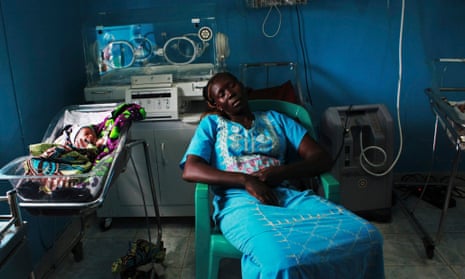Hundreds of millions more people could be living in extreme poverty than official estimates suggest, according to a study about how global development is being hindered by a lack of data about the world’s poorest people.
The Data Revolution: Finding the Missing Millions, a report published by the Overseas Development Institute (ODI), warns that poorer countries have no way to adequately measure their progress in areas such as poverty, health and education.
The ODI claims that the World Bank’s information on the number of people living in poverty could be drastically underestimated because of inadequate data collection. It says that there could be a quarter more people living on $1.25 a day – the World Bank definition of extreme poverty – than the official estimate of 1.01 billion.
Across the world, 350 million people might not be included in household surveys, limiting what we know about them. Data gaps are often due to traditional collection methods, such as door-to-door surveys, national censuses and government registrations, which are expensive or too infrequent to measure demographics in highly spread out, dense or shifting populations in, for example, urban slums or desert regions.
Between 2006 and 2013, 28 out of 49 countries in sub-Saharan Africa conducted household surveys, said the report. “This means that a quarter of the 414 million people who are estimated to live under $1.25 a day in the region according to the most recent official poverty estimate are derived by extrapolating from surveys dating from 2005 or earlier,” said the report.
Researchers claim this data lag means that in 2013, for example (the latest year for which there are figures), the number of maternal deaths per 100,000 live births could be anywhere between 160 and 290, rather then the estimated 210.
The report also says that, globally, we do not accurately know how many people live in cities, the volume of global assets that are held offshore and undeclared to tax authorities, how many girls are married before the age of 18, the percentage of the world’s poor who are women or the size of sub-Saharan Africa’s economy.
“The international community [will not] be able to support the most vulnerable and marginalised people without an overhaul of the current ways of gathering statistics,” said the report.
Elizabeth Stuart, research fellow at the ODI and author of the report, said that data is often not available because “the right questions are not being asked, data is not being asked on the right people, or governments choose to not ask certain questions because of political difficulties”.
Countries survey their populations at different times and in different ways, meaning that it is often hard to find comparable datasets internationally, the report found. It is also harder to get data about the poorest and most vulnerable people in society, such as people with disabilities and those with mental health problems.
The report’s authors said governments can’t hope to tackle poverty and meet other development goals without information about the true scale of the problem.
Data collection is expensive and time-consuming, meaning that detailed and accurate surveys are hard to achieve, said the authors. To conduct a household survey in countries such as Tanzania or Malawi, for example, it could cost the governments as much as $36.30 per person.
However, the researchers believed there are several “quick wins” in gaining access to potential data sources. These included opening up the World Bank’s hidden database on income distribution, developing new technologies to allow data to be more readily available, and investing more in government data collection and statistical systems.
Stuart said that such methods are required “to help the world’s poorest. You need to know where they live, what they look like and what they need. Data aren’t just about measuring stuff. They’re also vitally important to tell governments what they need to know to be able to lift them out of poverty.”

Comments (…)
Sign in or create your Guardian account to join the discussion